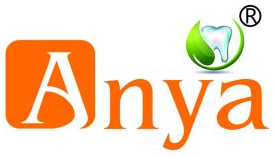Dental Instruments To Clean Teeth
Taking care of our teeth is an essential part of maintaining good oral health. While regular brushing and flossing are necessary, they may not always be enough to keep our teeth clean and healthy. That's where dental instruments come in. Dental instruments to clean teeth are specialized tools used by dental professionals to remove plaque, tartar, and other buildups from teeth and gums.
If you're looking to up your dental hygiene game, you may be wondering which dental instruments to use. In this article, we'll take a closer look at some of the most common dental instruments used for cleaning teeth, their functions, and how to use them properly.
Air-driven handpieces: These handpieces are powered by compressed air and are generally less expensive than electric handpieces.
Electric handpieces: These handpieces are powered by electricity and are generally more powerful and efficient than air-driven handpieces.
Dental burs: Dental burs are dental instruments used to remove decayed or damaged tooth structures. They come in a variety of shapes and sizes and are made from materials such as tungsten carbide or diamond. Dental professionals use dental burs with a handpiece to remove decayed or damaged tooth structure and prepare the tooth for filling.
A: It's not recommended to use dental instruments at home without proper training and guidance from a dental professional. Improper use of dental instruments can cause damage to the teeth and gums.
Q: How often should dental instruments be cleaned?
A: Dental instruments should be cleaned after every use to prevent the spread of bacteria and infection.
Q: Can dental instruments be sterilized?
A: Yes, dental instruments can be sterilized to prevent the spread of bacteria and infection. Dental professionals typically use an autoclave to sterilize instruments.
Q: How often should I visit the dentist for a professional cleaning?
A: It's recommended to visit the dentist for a professional cleaning at least twice a year or as recommended by your dentist.
If you're looking to up your dental hygiene game, you may be wondering which dental instruments to use. In this article, we'll take a closer look at some of the most common dental instruments used for cleaning teeth, their functions, and how to use them properly.
The Top Dental Instruments to Clean Teeth
Scalers
Scalers are dental instruments used to remove plaque and tartar buildup from teeth. They come in a variety of shapes and sizes, and dental professionals use them to scrape away the buildup from the surface of teeth and below the gum line. There are two main types of scalers:- Curettes: These are scalers with a curved end that are used to clean below the gumline.
- Universal Scalers: These are scalers with a straight end that are used to clean the surface of teeth.
- Prophylaxis Cups: Prophylaxis cups are dental instruments that attach to a handpiece and are used for polishing teeth. They are made of rubber material and come in a variety of sizes and shapes. Dental professionals use prophylaxis cups with a polishing paste to remove surface stains and smooth out the surface of the teeth.
Handpieces
Handpieces are dental instruments that are used to power other dental instruments, such as prophylaxis cups and dental burs. They come in two main types:Air-driven handpieces: These handpieces are powered by compressed air and are generally less expensive than electric handpieces.
Electric handpieces: These handpieces are powered by electricity and are generally more powerful and efficient than air-driven handpieces.
Dental burs: Dental burs are dental instruments used to remove decayed or damaged tooth structures. They come in a variety of shapes and sizes and are made from materials such as tungsten carbide or diamond. Dental professionals use dental burs with a handpiece to remove decayed or damaged tooth structure and prepare the tooth for filling.
Dental Mirrors
Dental mirrors are dental instruments used to provide a better view of the teeth and gums during dental procedures. They are typically made of a reflective surface and a handle and come in a variety of shapes and sizes. Dental professionals use dental mirrors to examine hard-to-see areas of the mouth and to guide other dental instruments during procedures.How to Use Dental Instruments to Clean Teeth Properly
While dental instruments can be effective in removing plaque and tartar buildup, it's essential to use them properly to avoid causing damage to the teeth and gums. Here are some tips for using dental instruments to clean teeth properly:- Use the right tool for the job: Different dental instruments are designed for different tasks. Make sure you are using the correct instrument for the task at hand.
- Hold the instrument properly: Grip the instrument lightly and use a gentle, controlled motion.
- Use the instrument at the correct angle: Dental instruments are designed to be used at a specific angle to avoid damaging the teeth and gums.
- Start with gentle pressure: Apply gentle pressure to the tooth or gum tissue and gradually increase pressure as needed.
- Clean the instruments properly: After use, clean dental instruments thoroughly to prevent the spread of bacteria.
FAQs about Dental Instruments to Clean Teeth
Q: Are dental instruments to clean teeth safe to use at home?A: It's not recommended to use dental instruments at home without proper training and guidance from a dental professional. Improper use of dental instruments can cause damage to the teeth and gums.
Q: How often should dental instruments be cleaned?
A: Dental instruments should be cleaned after every use to prevent the spread of bacteria and infection.
Q: Can dental instruments be sterilized?
A: Yes, dental instruments can be sterilized to prevent the spread of bacteria and infection. Dental professionals typically use an autoclave to sterilize instruments.
Q: How often should I visit the dentist for a professional cleaning?
A: It's recommended to visit the dentist for a professional cleaning at least twice a year or as recommended by your dentist.

